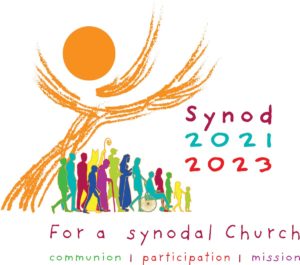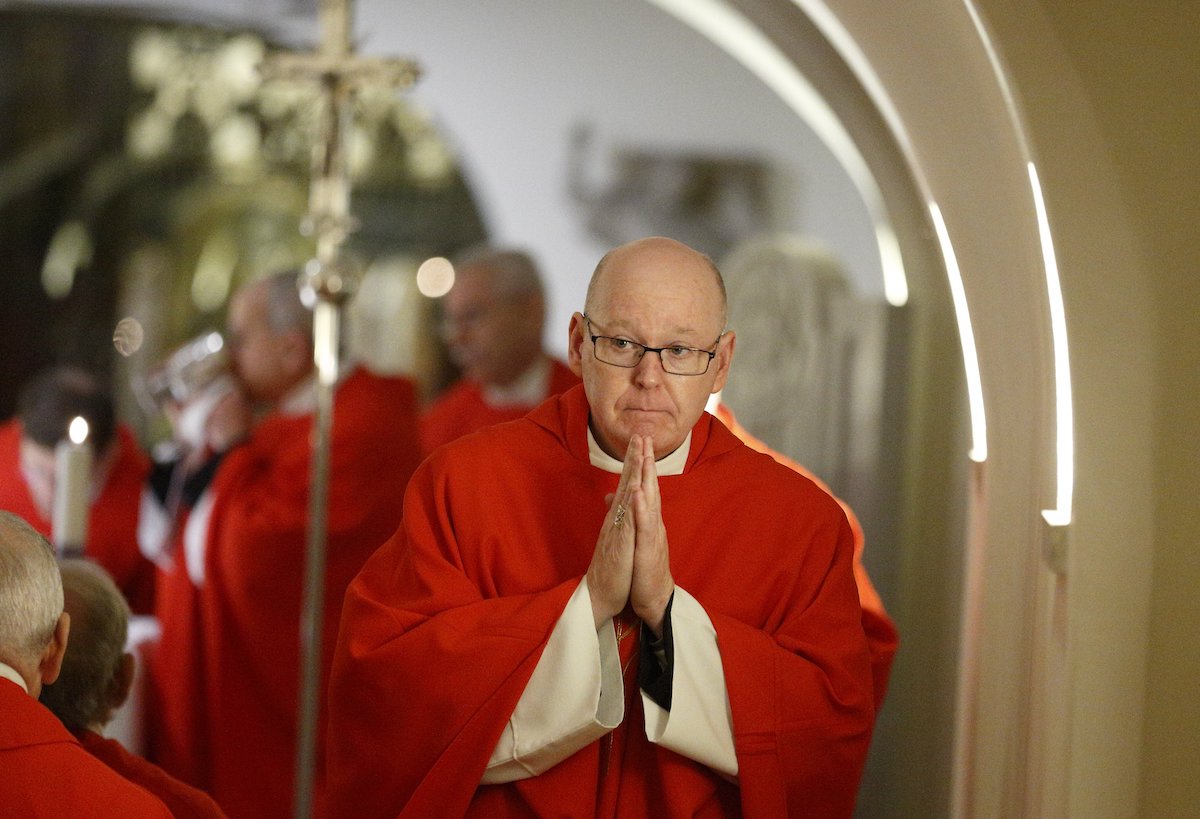By Bishop Brendan J. Cahill, Catholic News Service

I remember attending a workshop given by Father John Kemper in the early 2000s focused on the theme of teaching “Gen Xers.” At the time, I was teaching in a seminary and it seemed that often we teachers would enter into conversations about the “young seminarians” and how hard it was for us to understand them. I still have my notes from the talk that day, and the memory I want to share with you is that he told us, “When a student asks a question, it probably is just a question.”
That observation wouldn’t appear to be so enlightening to many people, but for someone who often perceived a question as a challenge to authority, it changed a way of looking at questions. For example, I realized that if a seminarian asked me why I celebrated the Mass in a certain way, I simply needed to respond to the question.
One of the 10 themes listed in section 5.4 of the “vademecum” for the synodal process observes that “listening is the first step, but it requires an open mind and heart, without prejudice.” One way to look at this theme is to consider the areas in which I may have closed my mind and heart to another person or group, and even judged them before they opened their mouth to ask a question.
Using the story mentioned above, we could ask ourselves, “How do I listen to those in my ‘classroom?'” and then follow with, “What are the labels or judgments I have placed on them?” and “Who do I keep out of the ‘classroom’?”
The most basic attempt at the first question might reveal that there is a tendency to listen more closely to those who agree with me. There also could develop a tendency to shut down an alternate view or even a simple question, maybe without even realizing it.
Father Henri Nouwen wrote about this spiritual problem years ago in his book “Reaching Out,” observing how often a teacher spends time answering questions that aren’t being asked.
Father Nouwen called for a spiritual movement in the classroom toward hospitality, in which students can be heard and appreciated for the questions they present. This image of the classroom can serve as an image for the different levels of relationships in my life. It could be at work or at home, in the larger community of schools and civic involvements, even in the Church.
The process of synodality has been challenging each of us to not immediately shut down any voice, and to listen to the questions that are being asked. In the process I am becoming aware of my preconceptions and judgments. I’m learning to listen without immediately responding.
The process challenges each of us to come to a greater appreciation of who we have been cutting off or who we may be talking about in a dismissive way. The process reminds each of us that often we don’t need to give an answer, we can simply sit and acknowledge another person’s humanity.
Beyond the people I may have been dismissing in my environment are those I don’t even know. It could be different cultures, languages, political views, ages, experiences or other categories. The process of synodality outlines a path for each of us to go beyond stereotypes and what we hear about another group of people. Hopefully there will be a moment in which each of us can listen to someone from a “new” group. A beauty of the process can be in the realization that whatever group we belong to, many of us have similar questions, hopes and dreams.
Recently Pope Francis consecrated Russia and Ukraine to the Immaculate Heart of Mary in communion with the bishops throughout the world. A part of the prayer of consecration acknowledged our own sins before God, including when “we grew indifferent and caught up in our own selfish needs and concerns.” May we develop listening hearts whose only concern is the salvation of all souls, especially those in most need of God’s mercy.







